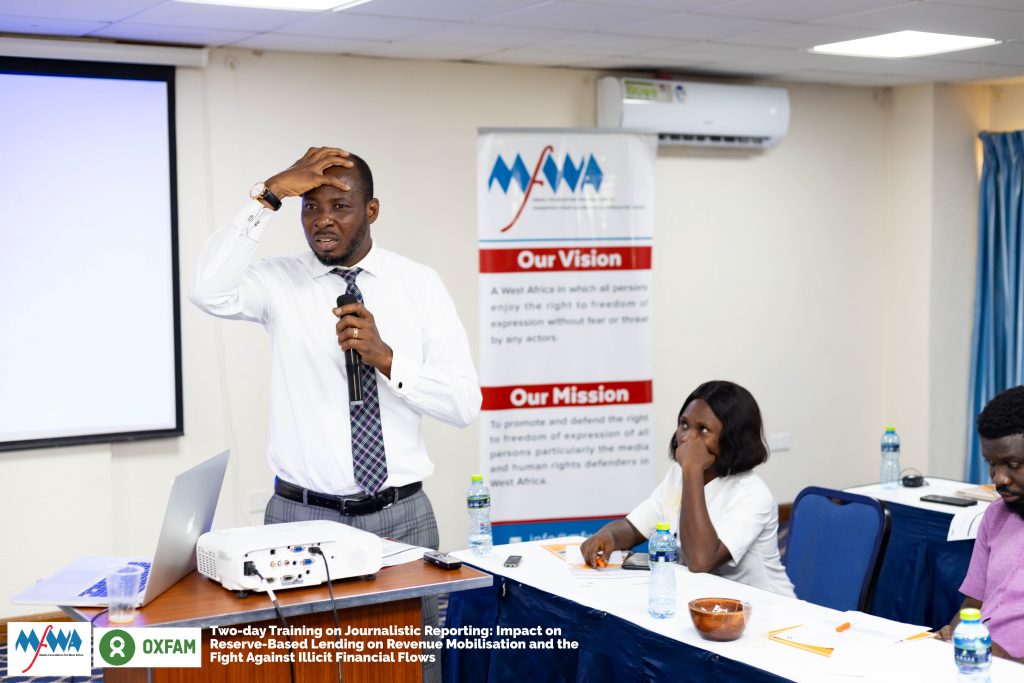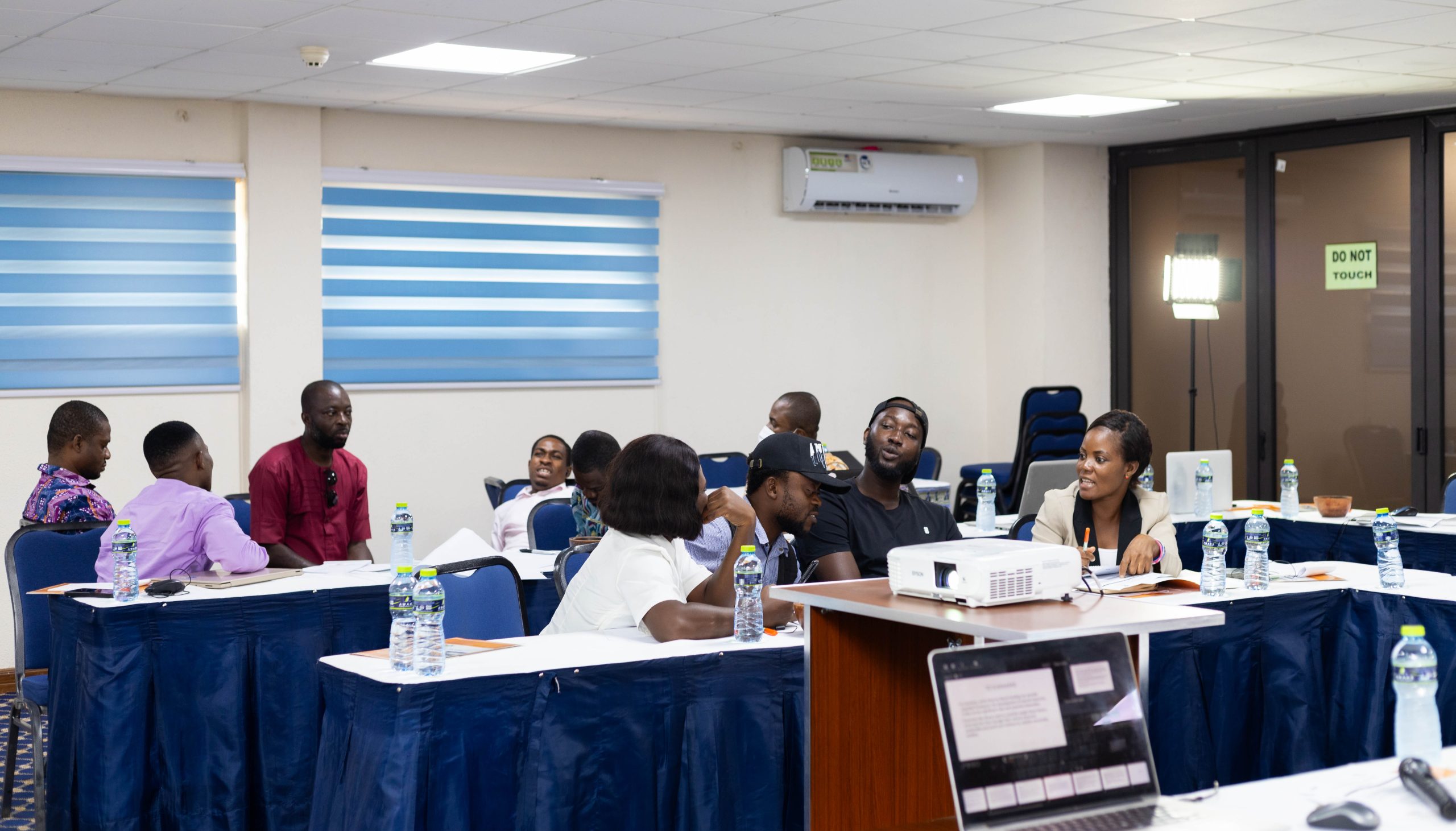Media Foundation for West Africa (MFWA) recently organized a two-day training for some journalists on the impact of reserve-based lending (hereafter RBL) on Revenue Mobilization and illicit financial flows (hereafter IFF).
The workshop is part of a project titled “Strategic Partnership Initiative for Ghana and West Africa” which was designed to share knowledge and enrich the capacity of journalists on RBL and IFFs. The project was funded by OXFAM in Ghana and DANIDA under the Accountable Governance Programme II.
Journalists were exposed to knowledge which would help them spot illicit financial activity in Ghana and outside of the country. The participants were drawn from 25 financial, business and economic media organisations including The Fourth Estate and Fact-Check Ghana of the MFWA.
Director of Research and Advocacy at the Media Foundation for West Africa (MFWA) Dr Kojo Impraim, stressed on the need for journalists and media owners to desist from the everyday partisan politics and focus on pressing issues that hinge on the survival of the country.
He pointed out how the media played a crucial role in raising awareness and leading the fight against illegal mining in 2017. Yet Dr. Impraim acknowledged the partisan interest which thwarted the desired results the country was hoping for, but he believes the media can take back its position and lead the charge to see Ghana regain its position as the ‘gateway to Africa’.

In addition, he spoke vehemently about how the natural resources of the nation has not been utilised properly for benefit of the country and for the citizens.
Dr. Bishop Akolgo, an IFF consultant, was also a lead facilitator in the two-day workshop who handled the areas of Reserve-based Lending (RBL) and Resource Based Lending.
He spoke extensively on natural resources extraction, taxation and the risks surrounding the sector. He added various tools and procedures journalists can employ in their work of reporting IFF activities and how they can uncover financial secrecy among others.




































